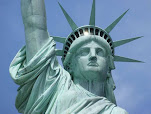Mount Shasta, Calif. -
On Dec. 1, Save the Rain celebrated its fourth birthday. Since its inception in 2005, the Mount Shasta-based non-profit has helped build 41 water catchment systems in 15 African communities, helping 150,000 people get access to clean drinking water.
In recognition of all Save the Rain has accomplished, in September the Tanzanian government selected founder Kelly Coleman to run with the Uhuru Torch – one of the country’s national symbols of freedom and hope.
Next month, Coleman will embark on her 12th trip to Africa, where she’ll help build a large-scale water catchment system on the Mbuguni School in Tanzania.
“There are 1,400 students in the Mbuguni primary school, which lies near the convergence of three large streams,” Coleman said. “These streams meander through thousands of communities that have absolutely no sanitation infrastructure, and while water is the bringer of life, it can also be the carrier of disease.”
The rainfall pattern in Mbuguni is different than in the other regions Save the Rain has worked in, Coleman explained, and flooding there is a regular occurrence. These floods lead to serious typhoid outbreaks.
Coleman told the story of the last time she was in Tanzania in October, when a teacher from Mbuguni walked fifty miles to find her.
“He begged us to come and work at their school,” she said. “when I was there, they lost 35 children in just twelve hours.”
Coleman hopes that a large-scale catchment system will help control the flooding while providing the community with clean drinking water.
The Uhuru Torch
In 1961, Julius Nyerere, the first Tanzanian president, had a torch illuminated on the top of Mount Kilimanjaro as a symbol of hope, love, and freedom across the country.
The Uhuru Torch race takes place each year, and in September, Save the Rain was selected to receive and run with the torch.
“It was an amazing feeling,” Coleman said. “There was such beauty in the acknowledgement [the government] gave us.”
While she has been told that she’s the first white person to ever have carried the Torch in the race, Coleman said she’s most excited to have been selected because it will help spread the message and technology of water catchment systems.
“The more people who know, the better the outcome will be. Our goal is to be out of business in 10 years because the problem will have been solved. We will get to move on to the next place where we can be of service. The technology of harvesting rainwater has the potential to bring clean water to every doorstep on the planet.”
Women’s Water Initiative
After many months of careful planning and preparation, Coleman reported that the Women’s Water Initiative is currently underway and in full swing.
The Initiative works by teaching six African women how to construct water catchment systems. These women will become the teachers, and will recruit five other women into the program. Each woman will be taught to construct a 5,000 liter rain catchment system on their own home, and will receive the materials necessary to complete them.
As the teachers begin to pay back the $250 for materials, it goes to fund loans for the other women.
Money is never exchanged between the women, but rather cycled through the community in a “pay it forward” system.
“We interviewed 125 women who have enrolled in the program, and who have all agreed to the pay it forward system,” Coleman said.“They each understand that they must pay back the loan within one year, at about $15 per month.”
Coleman talked specifically about a 43 year old woman named Helena who has signed up for the program.
Helena has five children in her household. She currently walks four and a half hours each day to collect water for her family. In the past, Helena has dealt with disease related to unsanitary drinking water. She’s also lost at least one child.
Helena plans to pay back her loan by using the time she would have spent walking for water to harvest vegetables in her garden, and sell them at the market. She also wants to begin sewing, Coleman reads and translates from Helena’s application.
“After four cycles, 125 women will become 15,650 women,” Coleman said. “With an average of eight people per household, 125,200 people will get access to clean water from the initial Women’s Water Initiative funding.”
The total cost of one cycle is $31,250, and the systems created will provide an entire family with clean water for their entire lives, and the lives of their offspring, Coleman added.
“Our thanks to Bob Stafford of Rotary Montague, who is working to secure a grant for a portion of this project,” said Coleman.
Giving the gift of life
“This year, Americans will spend $450 billion during the holidays. It would take $30 billion to provide the entire planet with clean drinking water... in a time where we’re having to reevaluate so many things, giving the gift of life seems more in essence of the holiday spirit,” Coleman said.
Save the Rain is currently fundraising to complete the Women’s Water Initiative and the Mbuguni School project, she said.
“If we teach children to give, there’s a better chance for change and the guarantee of a more positive future. On [Save the Rain’s] birthday, we’d like to thank everyone who has travelled this incredible journey with us. Please celebrate your accomplishment and remember that a small group of thoughtful, committed citizens can change the world.”
To learn more about Save the Rain or to make a donation, visit their website at
Source:mtshastanews.com/
Subscribe to:
Post Comments (Atom)


No comments:
Post a Comment